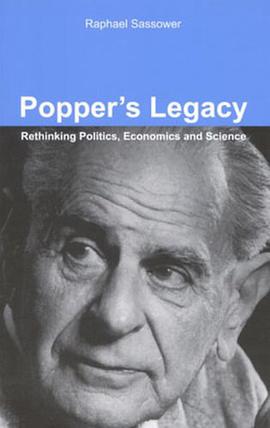

具体描述
Karl Popper has had an extraordinary influence on scientific and social thought. Widely regarded as one of the greatest philosophers of science of the twentieth century, he was also a highly influential social and political philosopher, a proponent and defender of the "open society." Popper's Legacy examines all aspects of his work, in particular his moral and psychological insights. Once Popper's scientific legacy is couched in political and moral terms, it becomes apparent that his concern for individual autonomy does not come at the expense of institutional guidelines and social conventions. Instead, these guidelines turn out to be essential sanctions for individual freedom. Popper envisions the conduct of the scientific community as paralleling the conduct of any democratically established community, where critical rationality guides the words and actions of all participants and leadership can be changed without violence. Raphael Sassower reveals the debt many intellectual movements - such as feminism, and postmodernism - owe to Popper.
作者简介
目录信息
读后感
评分
评分
评分
评分
用户评价
相关图书
本站所有内容均为互联网搜索引擎提供的公开搜索信息,本站不存储任何数据与内容,任何内容与数据均与本站无关,如有需要请联系相关搜索引擎包括但不限于百度,google,bing,sogou 等
© 2026 book.wenda123.org All Rights Reserved. 图书目录大全 版权所有




















